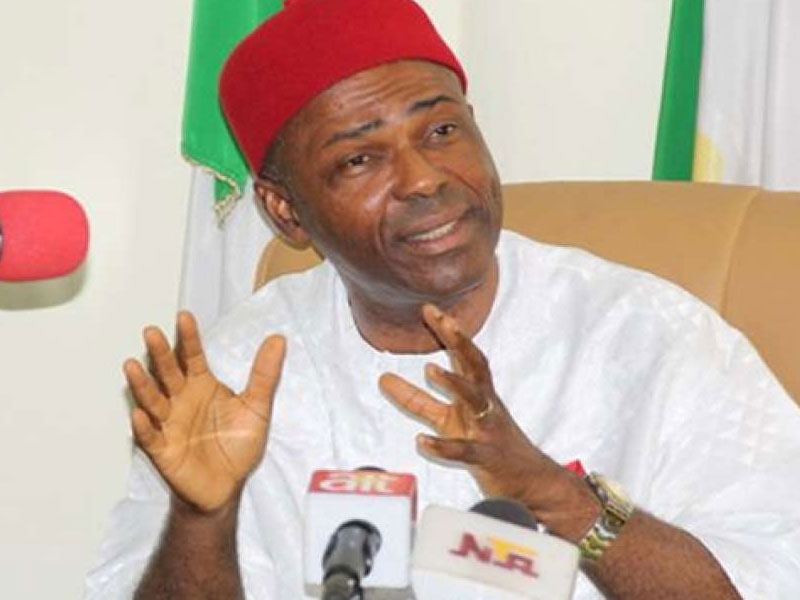The Inter-Agency Task Team (IATT) says that the annual loss of $4.2 billion worth of crude oil to corrupt practices is unacceptable and needs to be checked in the interest of national security.
It has therefore, called for the enforcement of stricter anti-corruption measures in all agencies of the government to enthrone transparency and accountability.
The IATT comprises anti-corruption agencies under the Presidency, and is the coordinating forum of agencies with corruption and accountability mandates.
Speaking in Abuja Thursday during a seminar to mark the International Anti-Corruption Day 2021, the Executive Secretary of the Nigeria Extractive Industries Transparency Initiative (NEITI) and a member of IATT, Dr. Orji Ogbonnaya Orji, said it was his agency’s special report that revealed the annual $4.2 billion crude oil that is either lost or stolen every year.
These losses pose serious challenges to the government’s ability to deliver public goods and services to citizens, he said.
According to him, “secret ownership or exploitation of mineral resources undermines national security and poses an existential threat to the country.
“Nigeria, through NEITI, recognised very early the damage done to the economy By these practices. In December 2019, Nigeria became the first country in Africa to establish a publicly accessible register of beneficial owners, and the first globally to establish a register in the extractive sector.
” This ground-breaking achievement was made possible by the efforts of different stakeholders including some anti-corruption agencies, in a process facilitated by Nigeria’s EITI.
“Within the last one year, we have carried out a self assessment of the beneficial ownership register, under the oversight of the global EITI. The EITI’s review of this assessment showed that Nigeria has made ‘meaningful progress’ in our implementation of the beneficial ownership register.
“This is the second highest performance rating in the global EITI ranking, and was achieved after barely one year since we commenced implementation of beneficial ownership disclosure in Nigeria.
“Before the EITI validation of our Beneficial Ownership Disclosure, we have also facilitated a formal assessment by stakeholders, where we sought and received feedback from organizations, including within government and civil society, on gap analysis and ways to improve the beneficial ownership register.”
Orji also disclosed that NEITI had since aggregated the feedback into a remediation plan for beneficial ownership disclosure in the extractive industry.
He stated that in the last one year NEITI had entered into strategic partnerships with anti-corruption agencies to enhance corruption detection, asset recovery and combating illicit financial flows in the extractive industry.
“Specifically, our MoU with the Nigeria Financial Intelligence Unit (NFIU) will add great value towards achieving the primary objectives of beneficial ownership disclosure.
“Our 2019 as well as ongoing 2020 audit of the extractive sector, we continue to uphold global reporting standards which are designed to provide data that would aid detection and measurement of illicit financial flows in the extractive industry. This standard requires country-specific reporting of extractive industry operations on a company-by-company and asset-by-asset basis.
“Within the past year, we have made significant contributions, in terms of providing data and analysis, to support the government’s Interagency Committee and the Independent Corrupt Practices Commission (ICPC) programme to curb illicit financial flows in the extractive industry.
“Specifically in terms of our Beneficial Ownership Disclosure programme, we will continue to fine-tune the process to the point that the cost of secret ownership far outweighs the benefits that secret owners of these assets derive from doing so.
“We cannot afford to relent because our enemies are not resting. In fact for every measure we put in place, the perpetrators will devise ways to undermine its effectiveness”, Orji added.
Also speaking at the event, an Executive Director at the United Nations Office On Drugs and Crime (UNODC), Ghada Waly, said that corruption costs the world trillions of dollars, while enabling crime, exploitation and exclusion, endangering people and planet, and compromising the recovery from the COVID-19 pandemic.
He said everyone in the adult age bracket had a role to play in standing up for what is right.
“You fight corruption when you refuse to pay or take a bribe, even when it is “business as usual”; when you report a corrupt act, even when it doesn’t affect you; and when you play fair in sport, in business, and in life.
“The world’s 1.8 billion young people have the most at stake, and they have the perspective and conviction to find transformative solutions to corruption, and to hold leaders accountable.
“We must create opportunities to enable youth to fulfill their role as the future guardians of integrity. We at the UN Office on Drugs and Crime remain dedicated to our role in supporting countries to cooperate and take action through the UN Convention against Corruption.
“We are also engaging with allies in the public and private sectors, as well as in civil society, to promote transparency, integrity, and the rule of law.
“By preventing corruption and returning stolen assets, we are unlocking resources for growth and new jobs, building resilience to future emergencies, empowering women and young people, and laying the foundations for a fairer future. For our inclusive recovery, for our hopes to achieve the Sustainable Development Goals, and for the rights of everyone, let us all live up to our roles in saying No to Corruption” Waly explained.

